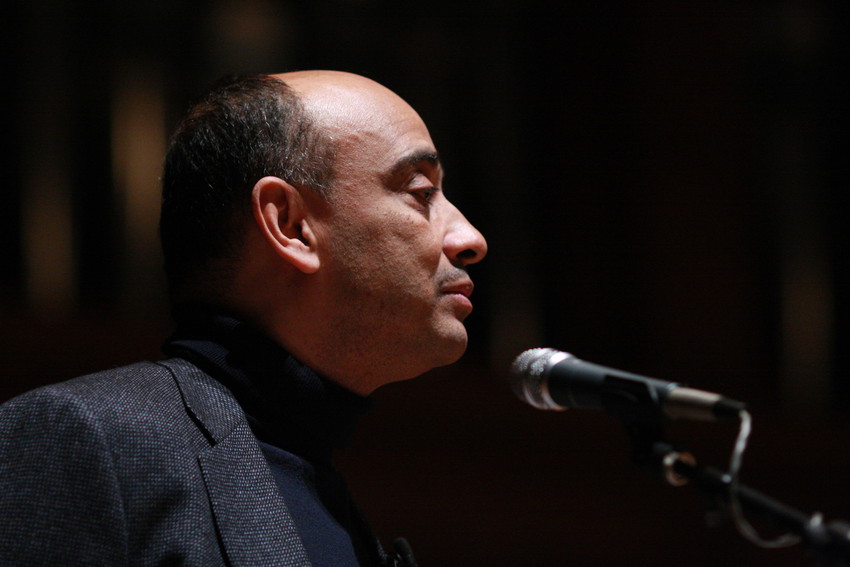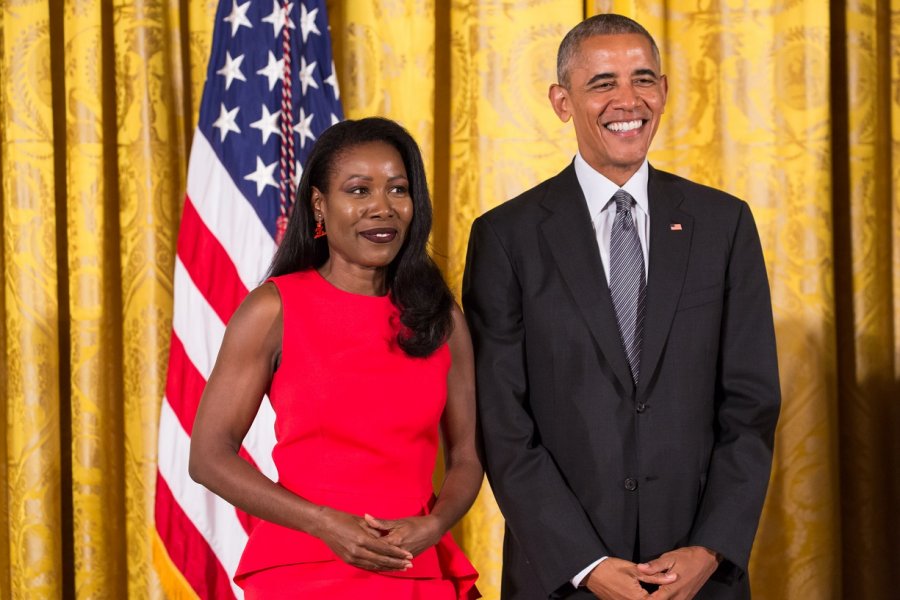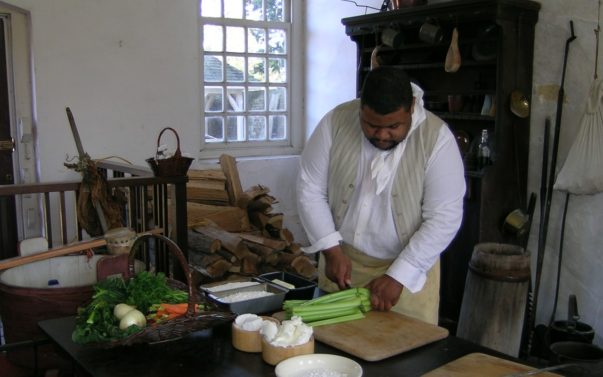
After a rich discussion between philosopher Kwame Anthony Appiah and museum director Johnnetta Cole, the final question in Oberlin’s Finney Chapel was a zinger.
Appiah, who won an Anisfield-Wolf Book Award in 1993 for his influential collection of essays “In My Father’s House: Africa in the Philosophy of Culture,” had been turning over questions of identity and art with Cole, an anthropologist who leads the Smithsonian’s National Museum of African Art. The duo’s last question came from Kelsey Scult, 20, an Oberlin African Studies major, who just completed a January internship at the Northwest African American Museum in Seattle.
Looking at Cole, the white student asked, “If I was up for a job at your museum against someone of African descent, I would think they should probably get the job.”
Without hesitation, Cole told Scult she had asked “an absolutely wonderful question. When you go for the job, I would urge you to identify with all of humanity. And all of humanity came from only one place—the African continent.”
Cole, 76, who grew up in Jacksonville, Florida, said her mother understood something about common humanity. “My mother didn’t have positive experiences with white folk, but whenever she did, she’d say, ‘You know so-and-so, that white man, he must have a touch of color.’ I live for the day when we dwell more on our connectedness than our differences. If you’ve done your work, and you know how to move with respect, then it should be your job.”
Appiah, 58, president of Pen America and a Princeton University professor, agreed. He reminded Scult that the W.E.B. Du Bois sought out white experts in compiling his Encyclopedia Africana, and that museum staffs are not segregated. “Identity is not the main thing that matters in scholarship, although identity does matter,” he said, noting that a cadre of white men weighing the intellectual rigor of women might be suspect.
The February 7 evening in Finney Chapel began with Appiah’s slide show of exteriors of renowned museums. He noted that these institutions were forming during the 19th Century’s infatuation with Romanticism, a reaction to the Enlightenment that yoked artistic expression to nationalism. Appiah argued that contemporary peoples aren’t shed of this link, using an example from the Guggenheim Museum that grouped El Greco and Picasso as exemplars of Spanish art, even when the biographical facts confound such claims.
“One of the great philosophical misunderstandings about art is that it is an expression of a nation, a culture, and not the work of an individual,” Appiah said. This is just as true for literature, which borrows liberally from other wells, as William Shakespeare did from Italian sources, he said.
Cole, who had left the stage for Appiah’s opening remarks, returned to ask him, “If museums did not exist, would it be necessary to invent them?”
Appiah looked slightly startled. “That’s a great question,” he murmured. “The things that museums do, we’d have to do—care for precious objects that come from the past, help interpret them, introduce young people to this great human heritage and research those objects about which we don’t know enough.” He said the key meaning of the arts lies in the act of preserving and passing on the masterpieces worth responding to.
For identities to matter, Appiah said, they must be taken up, interpreted and mediated by outside reactions. He said if he began wearing a dress around the Princeton campus, there might be mild surprise, but little more. A student came to the microphone and challenged him, saying in academics, gender bending would frequently provoke hostility.
Cole, who graduated from Oberlin in 1957, said she was smitten by the student’s moxie. Several times, she circled back to quote an Appiah truism: “Things are always more complicated than they seem, and some complexities we don’t like to confront.” When the same student asked how First World museums, which own stolen objects, justify exhibits that amount to “celebrations of colonialism, exploitation and displacement,” Appiah said the crux was not ownership, but access.
“Not everything that started out in a colonial place was stolen,” he said. “What’s really important is if you live in Mali, you don’t have much of a shot at the cultural artifacts that a person in London or New York or Berlin has a chance to see.” Appiah said he was cheered by some of the lending now from the British Museum to institutions in Kenya and China, whose curators are keen to exhibit not just indigenous objects, but want examples of English and European art to share.
In international exchanges, Appiah noted wryly, “Every threat can be re-described as an offer.”
Here is a video of a 2011 discussion Cole and Appiah held at the Smithsonian:




Anisfield-Wolf Book Awards | VIDEO: Kwame Anthony Appiah Shares What Winning An Anisfield-Wolf Award Meant To Him
February 25, 2013
[…] our first installment, we spoke to Kwame Anthony Appiah after his recent talk with Johnnetta Cole at Oberlin College. He was, as we predicted, gracious and forthcoming. We look forward to share more interviews with […]
Anisfield-Wolf Book Awards | Kwame Anthony Appiah Speaks On National Honor At Severance Hall Lecture
March 20, 2013
[…] Kenneth F. Ledford, professor of history and law at Case Western Reserve University, praised Appiah as “a massively productive scholar and one of the leading intellectuals in the United States.” […]